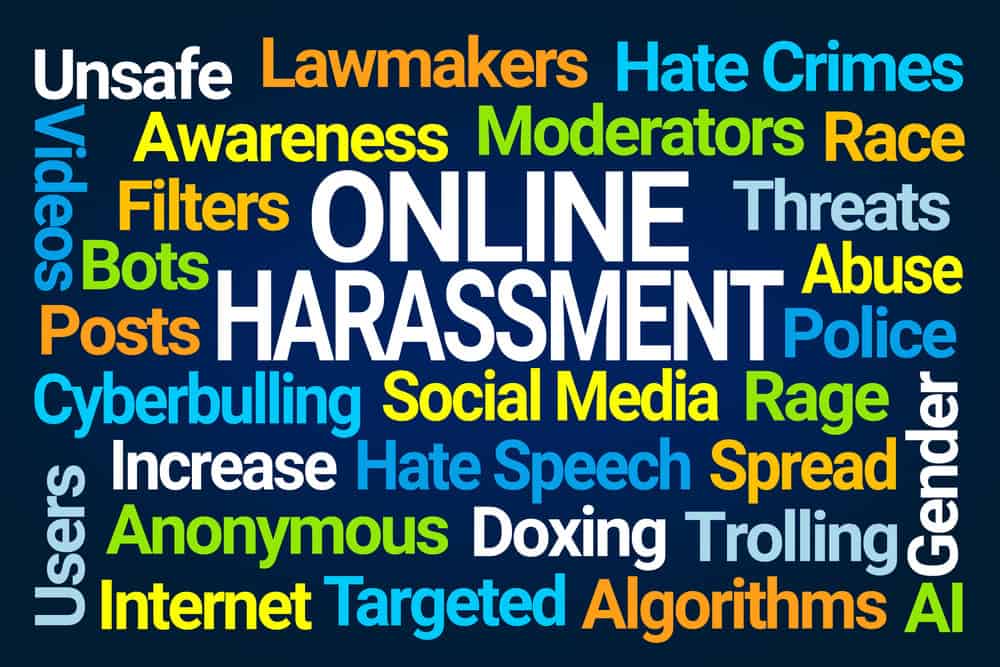Domestic violence is a pervasive issue that affects countless people across numerous jurisdictions, including California. In the Golden State, domestic violence encompasses a range of behaviors that involve physical, emotional, or psychological harm toward individuals in relationships. One can effectively recognize and address this critical concern by understanding the legal definition of domestic violence in California.
In California, domestic violence extends beyond just physically abusive acts. It encompasses a wide range of behaviors, such as stalking, harassment, intimidation, and destruction of personal property. Additionally, laws in the state protect not only intimate partners but also family members, cohabitants, and individuals in dating relationships. Understanding the various facets of domestic violence enables individuals to identify the signs and seek timely assistance for themselves or their loved ones.
Key Takeaways
- Domestic violence in California covers physical, emotional, and psychological harm in various relationships.
- The legal definition extends to stalking, harassment, and destruction of personal property.
- State laws protect intimate partners, family members, cohabitants, and individuals in dating relationships.
Legal Definition of Domestic Violence in California
Comprehending the legal definition of domestic violence is crucial because it encompasses a wide range of behaviors that may affect many individuals. The law in California, specifically the Family Code Section 6203 and Penal Code Section 273.5, defines domestic violence as a comprehensive category that includes physical, emotional, and psychological abuse that one partner inflicts upon their intimate partner or family member.
First and foremost, physical abuse takes precedence when it comes to domestic violence cases. This involves intentionally causing bodily harm to the victim, such as hitting, kicking, or slapping. Nevertheless, California’s legal definition transcends beyond mere physical violence, as it also encompasses emotional and psychological abuse. This includes actions like harassment, intimidation, or even humiliation.
The law doesn’t turn a blind eye toward vulnerable victims. In California, threatening or attempting harm toward an intimate partner can also be deemed domestic violence, depending on the circumstances. The perpetrator’s insidious intent is the focal point in these instances, even without physical injuries.
Navigating California’s legal definition of domestic violence can be intricate due to the nature of emotional and psychological abuse, which might appear less clear than physical abuse. Moreover, it’s essential to realize that verbal insults or arguments alone don’t necessarily constitute domestic violence, as additional patterns of coercive or controlling behavior must be present.
To sum it up, California’s legal definition of domestic violence is extensive and attentive towards various forms of abuse, aiming to safeguard the welfare of individuals in domestic relationships. By being aware of these classifications, the Golden State’s residents can keep themselves informed, vigilant, and safe.
Types of Domestic Violence
Physical Abuse
Physical abuse is a frightening and damaging form of domestic violence. It includes hitting, punching, kicking, scratching, or choking. It’s not just limited to physical harm but can also involve threats and intimidation to instill fear and maintain control. The effects of physical abuse are often evident through bruises, cuts, and broken bones, but the emotional scars run much deeper.
Emotional Abuse
While not as visibly apparent, emotional abuse can be, in many ways, as harmful as physical abuse. This abuse revolves around manipulative and degrading tactics to demean and erode the victim’s confidence. Abusers often use coercive control to isolate their partners, belittle their achievements, and make them feel worthless. The toxic cycle of emotional abuse can lead to long-lasting mental anguish, contributing to depression, anxiety, and diminished self-worth.
Sexual Abuse
Sexual abuse is a sinister aspect of domestic violence that often goes unspoken. It encompasses non-consensual sexual acts, such as rape, sexual assault, and forcing someone to perform degrading acts. Abusers might also employ harassment and threats to demand compliance or even use drugs to disable their partner’s ability to resist. The psychological toll of sexual abuse can leave victims feeling violated, shattered, and traumatized, impacting their sense of safety and trust.
Financial Abuse
Financial abuse may seem less violent on the surface, but its effects are just as crippling. This subtle form of control involves limiting access to money, denying job opportunities, and dictating financial decisions. An abuser may steal or withhold funds, sabotage a partner’s career, or manipulate joint accounts to maintain power and trap the victim in a cycle of dependency. The insidious nature of financial abuse leaves victims feeling trapped, with seemingly no way to escape their abuser’s grasp.
Relationships Covered by Domestic Violence Laws
In California, domestic violence laws encompass a wide range of relationships to protect individuals who may find themselves in a vulnerable situation. The primary focus lies on those involved in intimate connections, but these laws also extend to various other interpersonal relationships, providing a comprehensive safety net.
For instance, spouses and registered domestic partners are undoubtedly covered by the state’s domestic violence laws. They’re not the only ones; dating relationships and live-in romantic partners also fall under protection. These provisions highlight the understanding that domestic violence can occur outside legal and long-term commitment boundaries.
Moreover, parents and children, as well as others related by consanguinity (blood) and affinity (marriage), are encompassed by these statutes. This inclusion acknowledges that conflicts within family dynamics can escalate to a level that warrants legal intervention and protection. However, it’s crucial to note that not all family-related disputes are considered domestic violence; certain criteria must be met for the designation to apply.
Ultimately, California’s domestic violence laws cast a relatively wide net, ensuring that many interpersonal relationships are protected from harm. The extensive coverage is a testament to the state’s commitment to eliminating domestic violence and preserving the safety and well-being of its residents.
Examples of Criminal Acts Related to Domestic Violence
Domestic violence in California encompasses a wide range of criminal acts that occur within a domestic relationship. These acts can be quite frightening and can tear families apart. Some of the most common criminal acts related to domestic violence include battery, assault, corporal injury, stalking, trespass, and theft. Let’s dive in and discover the nitty-gritty details of these heinous actions.
Battery and Domestic Battery often go hand in hand. These acts involve the unlawful and forceful touching of another person. In domestic battery cases, the victim is usually a spouse, cohabitant, dating partner, or someone related by blood or marriage. It’s important to know that even the slightest touch could be considered a battery when done in an offensive or harmful manner.
Assault and Domestic Assault involve the perpetrator attempting or threatening to use force against another person. While these acts don’t necessarily result in physical harm, they leave victims emotionally shaken, fearing for their safety. Domestic assault primarily targets family members, spouses, and individuals in close relationships, resulting in a toxic atmosphere at home.
In Corporal Injury cases, the perpetrator intentionally inflicts bodily injury on a domestic partner. Such injuries often leave visible signs like bruises or cuts, causing agony and misery to the victim. The consequences and penalties for this type of act are frequently more severe, reflecting the gravity of the offense.
Stalking is another criminal act related to domestic violence. It involves the persistent and unwanted surveillance or harassment of an individual. Stalkers often employ various cunning methods, causing psychological distress and tragically invading the victim’s privacy and peace of mind.
Regarding Trespass and Aggravated Trespass, the perpetrator enters or remains on someone else’s property without permission. Typically, in domestic violence cases, an individual unlawfully enters a domestic partner’s or ex-partner’s home. Aggravated trespass comes into play when the offender unlawfully enters intending to cause harm or commit another crime, such as theft or burglary.
Theft and Burglary can also be related to domestic violence when the perpetrator steals from or unlawfully enters the home of a domestic partner. These acts not only violate the privacy and security of the victim, but often hold an emotional weight, as cherished and loved possessions can be taken or damaged during these offenses.
If you suspect that you or someone you know is a victim of any of these criminal acts related to domestic violence, don’t hesitate to contact the local police and seek help. Stay safe and be aware.
Child Abuse and Neglect
Child abuse and neglect are disheartening aspects of domestic violence in California. Every child deserves a safe and loving environment for their growth; however, some unfortunate cases involve parents or caregivers causing harm to the child, both physically and emotionally.
In California, child abuse takes on various forms, such as physical or mental injury, sexual assault or exploitation, unjustifiable punishment, and non-accidental harm to the child’s body. Furthermore, child abandonment, neglect, and endangerment are often considered as alarming as abuse. Parents are expected to meet their child’s basic needs; failing to do so is seen as a grave form of neglect.
California takes a firm stance against child abuse and neglect, implementing laws to protect innocent young lives. Notably, the Child Abuse and Neglect Reporting Act (CANRA) makes it mandatory for teachers, doctors, and youth service providers to report any suspected abuse or neglect to law enforcement or a county welfare agency. But that is just a piece of the larger puzzle in the fight against child maltreatment.
Parents who are found guilty of child abuse or neglect may face harsh consequences, including probation and even imprisonment. Additionally, they may be required to attend parenting classes, perform community service, or pay restitution to the victim. For the more severe cases, the court may terminate parental rights, making it crucial for parents to seek legal counsel if they face allegations.
It’s worth noting that many child abuse and neglect cases stem not from malice but rather from stress, addiction, or mental health struggles. Community support and access to appropriate services can play a vital role in preventing child endangerment and failure to provide care.
In conclusion, child abuse and neglect are pressing concerns in California. By implementing stringent laws, encouraging community support, and providing access to vital services, the goal is to create a safe space for children to thrive despite the harsh realities present in some households. The task may be daunting, but it seems quite achievable with collaborative efforts.
Elder and Dependent Adult Abuse
In California, Elder and Dependent Adult Abuse is a serious and prevalent form of domestic violence. We often think of abuse as merely physical, but it extends well beyond that, encompassing emotional, financial, and even sexual harm inflicted upon elderly or dependent adults.
Elder abuse refers to mistreating individuals aged 65 or older, while dependent adult abuse targets vulnerable persons between 18 and 64. Sadly, these individuals are often prime targets for abuse, as they may have physical, mental, or developmental disabilities that render them reliant on others for care and support.
There is a myriad of acts that can qualify as abuse, such as:
- Physical violence: Hitting, slapping, or otherwise causing bodily harm
- Sexual abuse: Non-consensual sexual contact or exploitation
- Emotional abuse: Verbal threats, demeaning comments, or other emotional manipulation
- Financial abuse: Stealing, mismanaging, or withholding resources from the victim
Isolation is another common tactic employed by abusers. By restricting access to social networks and support systems, the abusers exert control over the victim, making it increasingly difficult for them to seek help or break free from the cycle of violence.
In the Golden State, help is available for elder and dependent adult abuse victims. The Adult Protective Services (APS) agency addresses and prevents such abuse. APS investigates reports of mistreatment, provides support services, and collaborates with other institutions to protect these vulnerable populations.
When abuse is suspected, it is vital to report it. Each of us has a role in raising awareness, fostering open dialogue, and, ultimately, safeguarding our most vulnerable neighbors from the painful and profound harm caused by abuse.
There is no excuse for abusing our elders and dependent adults. Let’s be their voice and break the silence to create a safer environment for all.
Cyber Domestic Violence
In today’s digital age, domestic violence has taken a new form with the emergence of cyber domestic violence. This insidious trend involves perpetrators using technology to harass, intimidate, and control their victims. Let’s delve deeper into specific types of cyber domestic violence prevalent in California.
One distressing form of cyber domestic violence is revenge porn. It’s when an individual shares explicit photos or videos of their former partner without consent as a form of revenge, humiliation, or control. This despicable act can have devastating consequences for victims, including emotional trauma, loss of jobs or relationships, and a profound sense of violation.
California law has taken a firm stand against this heinous practice and implemented legislation that criminalizes revenge porn in the state. Perpetrators can face severe penalties, including hefty fines and imprisonment, reflecting the gravity of this issue.
Another alarming way abusers can inflict harm is by using the internet to post harmful information about their victims. This can involve spreading malicious rumors, false accusations, or sensitive personal information to the victim’s social circle, colleagues, or public platforms. The ramifications can be deeply unsettling, striking fear in the victim, isolating them from their support system, and potentially impacting their professional and personal lives.
The line between online and offline harassment is often blurred. An abuser employing these methods can achieve a stranglehold on his or her victim’s existence, undermining their sense of safety, privacy, and self-worth. Constant threats and coercion may force victims to stay in a toxic relationship or comply with unreasonable demands as they fear further retaliation in the cyber world.
While California is proactive in addressing these new digital forms of domestic violence, raising awareness is essential. Victims should feel empowered to come forward, report abuse, and seek support in an environment that strives to be compassionate and resourceful. Furthermore, fighting against cyber domestic violence requires vigilance, empathy, and the collective efforts of the legal apparatus, technological platforms, and society.
Legal Consequences for Domestic Violence Offenders
In California, law enforcement and courts take domestic violence offenses seriously. Depending on the severity of the incident, charges can range from misdemeanors to felonies, with lasting consequences for the offenders.
When an individual is convicted of a domestic violence offense, they may face various legal consequences. For instance, misdemeanor charges often entail fines and probation, while felony convictions can lead to more severe penalties such as imprisonment and hefty fines. In either case, a conviction would stain the individual’s criminal record.
Aside from fines and jail time, one significant consequence that domestic violence offenders typically face is the issuance of a restraining order. This legal protection aims to keep the victim safe from any further abuse. The order restricts the offender from contacting the victim – be it in person, via phone, or other means. Violating a restraining order can lead to additional criminal charges and increased penalties.
Law enforcement agencies play a crucial role in addressing domestic violence incidents. Once a report is filed, they promptly respond and may arrest the alleged offender depending on the evidence. From there, it’s up to the courts and prosecution to determine the appropriate consequences for the offender.
In summary, the legal consequences for domestic violence offenders in California can be quite severe. Between misdemeanors and felonies, restraining orders, and the involvement of law enforcement and courts, offenders face a potentially life-altering set of penalties. A conviction can tarnish their reputation and leave a lasting impact on their personal and professional lives.
Frequently Asked Questions
What acts qualify as domestic abuse under California law?
In California, domestic abuse covers many acts, not just physical violence. It includes threats, emotional abuse, harassment, intimidation, and even destruction of property. The key factor is the relationship between the abuser and the victim, which must involve current or former spouses, cohabitants, dating partners, or those who share a child.
What are the different types of domestic violence recognized in California?
California recognizes various forms of domestic violence, such as:
- Physical abuse: Pushing, hitting, slapping, strangling, or weapon use.
- Emotional abuse: Name-calling, manipulating, isolating, or controlling.
- Psychological abuse: Stalking, cyberstalking, or using fear to exert control.
- Sexual abuse: Pressuring or forcing unwanted sexual actions or denying contraception.
- Financial abuse: Withholding money, limiting access to resources, or taking control of finances.
How does California classify misdemeanor and felony domestic violence?
The state classifies domestic violence offenses as either misdemeanors or felonies, depending on factors like the severity of the act, weapons involved, and the defendant’s criminal history. Generally, less severe cases with minor injuries are treated as misdemeanors, while more severe cases with significant harm or repeat offenses could be considered felonies.
What are the legal consequences of domestic violence convictions in California?
Convictions for domestic violence in California come with serious consequences. Misdemeanor penalties may include fines, probation, community service, and mandatory treatment programs. For felonies, punishments may include imprisonment, hefty fines, and lengthy probation. Additionally, a conviction can result in restraining orders, loss of child custody or visitation rights, and repercussions on employment.
How does California’s three strikes law apply to domestic violence cases?
California’s three strikes law imposes harsher penalties on repeat offenders with prior convictions for serious or violent crimes, including some domestic violence offenses. A third strike can result in a 25-year-to-life prison sentence. Therefore, those facing domestic violence charges must seek legal advice, as multiple convictions can lead to severe legal repercussions.
What resources and protections are available to domestic violence victims in California?
California offers numerous resources and protections for domestic violence victims. These include restraining orders, shelters, support groups, counseling services, and legal assistance. Organizations like the National Domestic Violence Hotline, the California Partnership to End Domestic Violence, or local domestic violence agencies can provide information and guidance on the available options.






